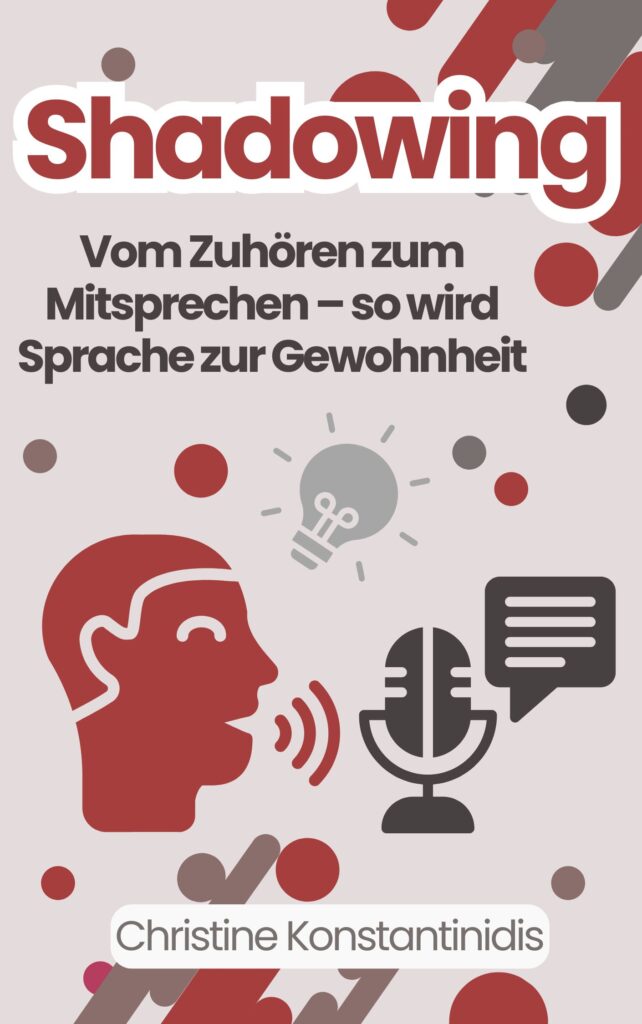Auch heute gibt es wieder die Originalantworten in Englisch und Italienisch zur neunten Folge der Interviewserie auf meinem Blog und auf dem Blog von Sprachheld.de.
Die neunte Frage lautete:
Is there any mistake you should absolutely avoid?
Quale sbaglio è da evitare?
Viel Spaß beim Lesen der Antworten. Die deutschen Übersetzungen findest du in den beiden oben verlinkten Artikeln.
Olly Richards
Doing things that are too easy. It’s easy to slip into doing “fun” things like watching movies, and spending time with native speaker friends who have a habit of always speaking English with you! In general, if it’s not hard, you’re probably not learning.
Jane Eggers
The biggest mistake is thinking that you’ll start using the language once you’ve got a bit better! Because actually it’s the other way round: you’ll only learn once you jump in and start trying.
Guilherme Castro
I think that most mistakes in language learning vary from person to person, but there are some mistakes that I myself would highly recommend avoiding. 1) Study just in the “classical” method, as being using grammar books. Grammar books can be helpful during beginning of the language acquisition process, but they are definitely not the best method and should never be the only resource of study. If you like grammars, you should at least use more than one style of grammar to study (different methods keep you motivated and stimulate your brain to think differently). But I would recommend people to avoid focusing on grammar books and spend more time enjoying real content in the language. In my Japanese studies, grammar books helped me lots so I cannot be totally against them. Nevertheless I can surely say that my progress in Japanese really started when I moved to real content and stopped wasting time focusing on grammar. 2) Spending time doing lots of exercises. Exercises can be useful to some people, but I feel that it is too much effort for not too much results. I encourage people to avoid doing lots of exercises and focus on improving their comprehension. Once they comprehend the language well, they can start thinking about writing and speaking exercises.
Kirsty Major
I think that being too hard on yourself is the quickest way to bring down your motivation. I’m a perfectionist and this means that I want every sentence to be perfect before I speak or write it. I tell my students that they shouldn’t think this way but sometimes I don’t take my own advice. Every learner will make mistakes. This is part of the learning process. The important thing is that we learn from them.
Giulia Novali
Di sbagli nell’apprendimento di una lingua straniera se ne possono fare molti. Uno di questi è non avvicinarsi alla lingua „per paura“, essere prevenuti verso un mondo ancora ignoto ci bloccherà già in partenza. Altro sbaglio è iniziare con entusiasmo e fermarsi alle prime difficoltà, dunque sacrificio e fiducia in se stessi e nelle proprie capacità sempre!
Chiara Fortini
Errori da evitare quando si comincia ad imparare una lingua:
Se ci sono delle difficoltà di apprendimento e i risultati non arrivano subito non dobbiamo lasciar perdere tutto, bisogna usare pazienza e costanza se si vuol raggiungere un obiettivo.
Non farsi spaventare dalla diversità del linguaggio, anzi bisogna apprezzare l’opportunità di esplorare nuovi modi di esprimersi. Le caratteristiche di una lingua sono molte volte le caratteristiche di una popolazione
Non trovare scuse per non usare la lingua che stai imparando, per esempio non pensare: il mio livello è troppo basso, o faccio troppi errori, o non conosco nessun madrelingua.
Non dobbiamo essere rigidi mentalmente: quando non sappiamo dire qualcosa non rinunciamo a parlare, ma cerchiamo di spiegarlo con altre parole trovando dei sinonimi.
Non facciamo l’errore di pensare che quello studiato in classe basti, è necessario riprendere la lezione a casa da soli per vedere se è tutto chiaro e successivamente memorizzare.
Seguire il testo e l’insegnante in classe non basta, bisogna sfruttare i propri interessi e bisogna essere curiosi nel cercare altre fonti di apprendimento come canzoni, film, giornali, blog ecc…
Claudia Scaringi
Molto spesso non si vuole cominciare a parlare nella nuova lingua perché “non si è ancora pronti”. I materiali che utilizzate per studiare vi aiuteranno a imparare i vocaboli e le strutture della lingua ma solo ascoltare la lingua come è effettivamente parlata vi preparerà per il vero mondo. Smettete di pensare che “un giorno” sarete pronti per parlare, quel giorno è oggi.
Das waren die Originalantworten zur neunten Interviewfrage. Die Antworten von Giulia, Chiara, Olly, Kirsty und Jane in deutscher Sprache findest du bei mir auf dem Blog, die Antworten von Claudia und Guilherme bei Sprachheld.de.
Herzliche Grüße
Christine






Schreibe einen Kommentar